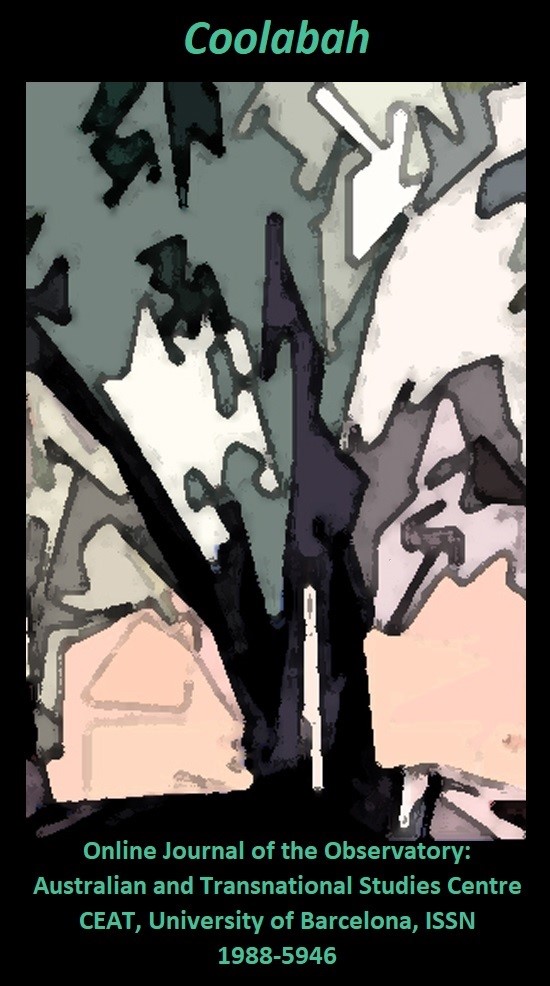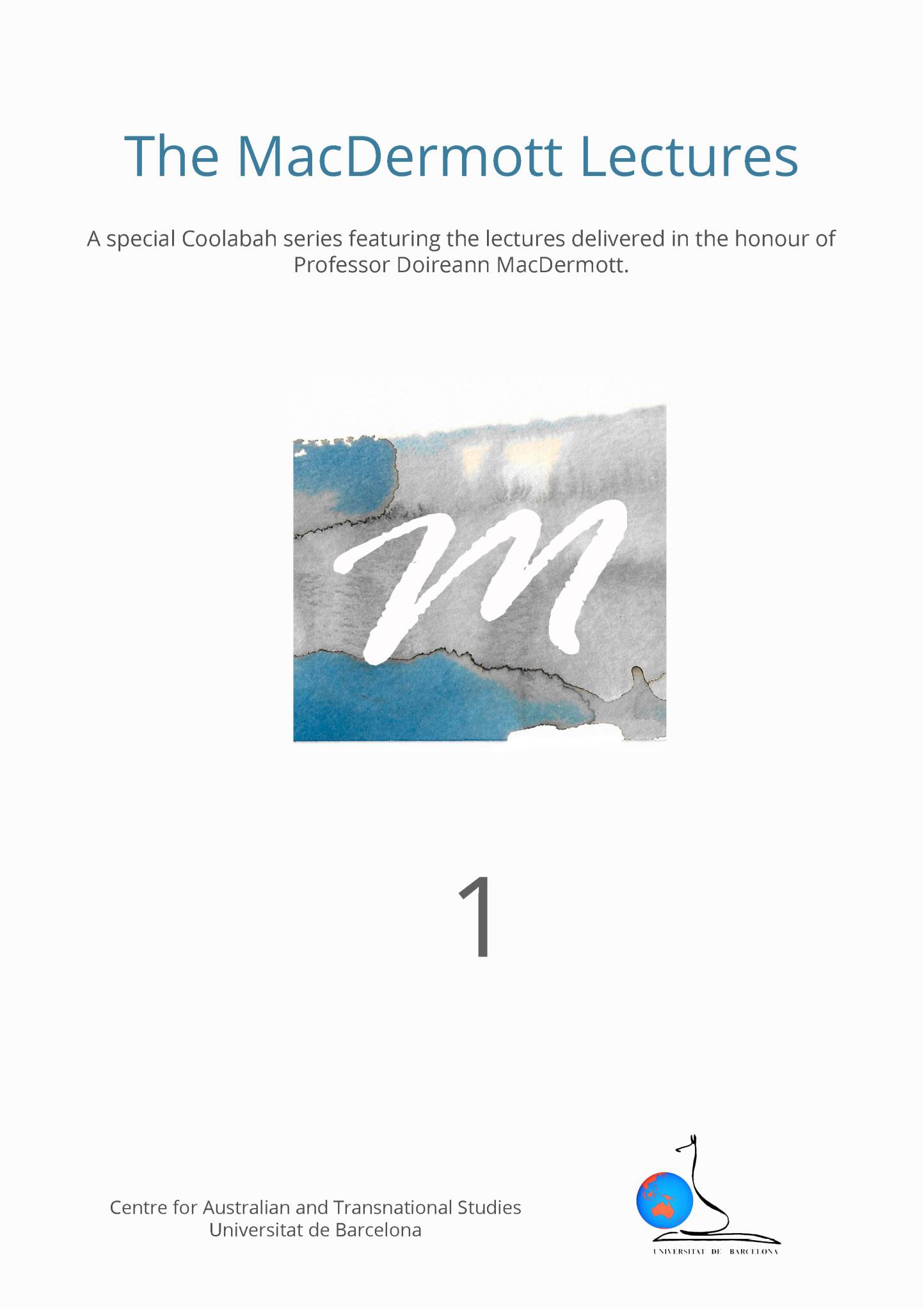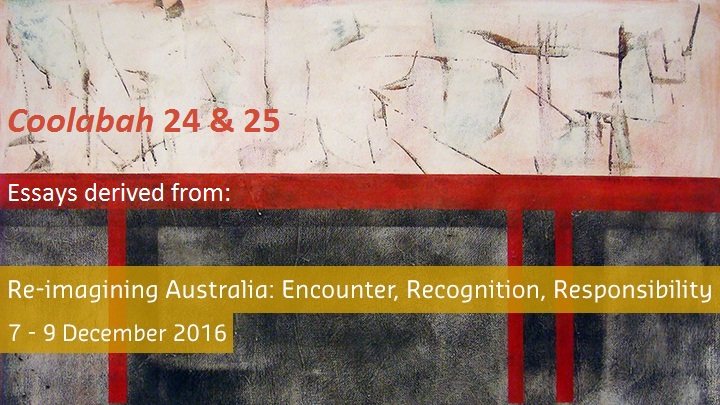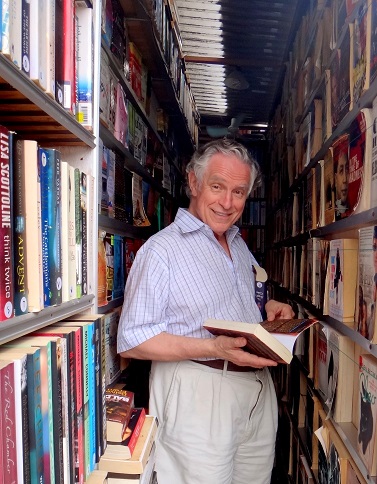Archives
-

Wounded landscapes: Human intervention into natural ecosystems. Cultural approaches and artistic responses
No. 35 (2023)This edition of Coolabah seeks to explore creative responses to the diverse challenges that natural ecosystems are suffering due to the invasive and unsustainable cycle of human production and consumption.
Guest editor: Herman Bashiron Mendolicchio
Associate editors: Honi Ryan and Sean Lowry
-
On Gases, Clouds, Fogs and Mists
No. 34 (2023)This special edition of Coolabah, ‘On gases, clouds, fogs and mists,’ collects articles and creative writing on the theme of atmospheres. While set in a variety of geographic regions and spanning different historical time periods, a through line in these works is their concern for the embodied experience of atmospheres. They are also full of ghosts, monsters and unexplained apparitions, gaseous forms that demand our attention. These apparitions are not just figments of one’s imagination or mere frightened projections, they are made of real atmospheric effects that exist outside of human perception or narration of them.
Guest editor: Benjamin Kidder Hodges
-
Pandemic as Polemic
No. 33 (2022)Coolabah issue Nr 33 (2022) boasts a small selection of papers originally presented at the Pandemic-as-Polemic online seminar on Covid-19 on 4 and 5 November 2021 at the University of Barcelona. The seminar was hosted by the Observatory: Centre of Australian and Transnational Studies OCEAT (formerly CEAT) at the Faculty of Letters and Communication. The international seminar explored how the Covid-19 pandemic has put our society under great stress and to the test on both the local, regional, national and international level, and how its impact has raised a host of questions about lifestyle, environment, socioeconomic inequality, health policies, science and especially governance and politics, as these papers testify to.
-

Between the Colonial and the Postcolonial: Writing and the Creation of a Third-Space Identity
No. 32 (2022)M. G. Sanchez is a Gibraltarian writer based in the UK. He studied at the University of Leeds, where he obtained BA, MA and PhD degrees in English Literature. He is the author of thirteen Gibraltar-themed books, among them novels, journals, memoirs, historical studies and collections of short stories. Numerous scholarly articles have been published on his books, and he has lectured about his work at universities in Europe and the US. This lecture was delivered online on Monday, 14 December 2020, during the Covid-19 confinement.
-
Mythical and Fictional Islands (Special Issue on Island Studies)
No. 31 (2021)This special issue of Coolabah features a series of papers that explore how islands are imagined and articulated outside the geographical and biological parameters of reality. It is hoped this special thematic issue of Coolabah will introduce Island Studies to a new audience of interdisciplinary scholars and in doing so will encourage new debates and/or viewpoints to engage with the field of island research.
Guest editor: Sarah MacKinnon
-
Translation, Poetry and Creative Practice
No. 30 (2021)The edition explores the practice of translation as an encounter with other cultures or as a collaborative act; it unravels the cross-disciplinary associations made when taking words into transit; it investigates the journey into the self as one’s own languages interact and pull against each other.
-
Crime and Punishment
No. 29 (2021)Modern Australia was conceived as a British convict colony, and this relatively recent past steeped in crime and punishment still affects its present. This Coolabah issue explores, across journalism, fiction, film, and poetry the various links that stretch back to the First Fleet, and give shape to the Australian nation-state. -
In Memoriam Geoff Davis
No. 28 (2020)Special issue to commemorate the life and achievements of the late Geoff Davis, postcolonial scholar based in Europe. -
Folklore, Media-Lore & Modernity
No. 27 (2019)This special themed issue, conceptualised by Philip Hayward and edited by Tiffany Hutton, features a series of papers exploring the connections between various forms of folklore and modernity and the development of contemporary media-lore. -

Reimagining Australia, Part 1 & 2
No. 24&25 (2018)This special double issue of Coolabah, numbers 24&25, was developed from selected presentations at Reimagining Australia: Encounter, Recognition, Responsibility, the International Australian Studies Association (InASA) Conference 2016, hosted by the Centre for Human Rights Education, Curtin University, and held in Fremantle, Western Australia, on 7-9 December. The double issue addresses the urgent need for Australia to be reimagined as inclusive, conscious of its landscape and contexts, locale, history, myths and memory, amnesia, politics, cultures and futures; reimagined via intense conversations and inter-epistemic dialogue; reimagined through different ways of knowing, belonging and doing. Key agendas, polemics and contestations at stake in this two-part publication project are raised in Tony Birch’s thought-provoking article that serves equally as an introductory essay. -
The Coolabah Short Poem Issue
No. 23 (2018)This issue is edited by the Australian poet Peter Bakowski and features short poems by Adam Aitken, Amanda Anastasi, Grant Caldwell, Aidan Coleman, Dan Disney, Joe Dolce, Laurie Duggan, Marisa Fazio, Barry Gillard, Jeff Guess, Matt Hetherington, Andy Jackson, Ross Jackson, Leanne Jaeger, John Jenkins, Ray Liversidge, Justin Lowe, Mark Mahemoff, Michaela Mark, Alex McKeown, Julian McLucas, Jan Napier, Nathanael O’Reilly, Geoff Page, Gregory Piko, Jan Price, Chris Ringrose, Rob Scott, Lel Sebastian, an Claire Rosslyn Wilson, who also provides the closing essay. -
Veronica Brady, academic voices and pending hugs
No. 22 (2017)Issue dedicated to the memory of Dr. Veronica Brady (1929-2015).
-
On the Borders of Belonging
No. 21 (2017)This post-congress Coolabah issue entitled “On the Borders of Belonging” offers seven papers developed from presentations at the Go Between In Between congress, held at the University of Barcelona 18-22 January 2016. They offer different perspectives on identity formation but all deal with the potentialities and pitfalls, the enrichment and impoverishment, the empowerment and disempowerment that may flow from identitarian in-between positions, an area of inter and cross-culturality Homi Bhabha famously coined “the Third Space” in “The Manifesto” (Wasafiri 29, Spring 1999: 38–40). Located between the known and the unknown, the homely and the unhomely, the national and the foreign, the Self and the Other, this culturally fluid, mixed, hybrid discursive space is the zone where more and more human beings, perhaps willy-nilly, find themselves in these times of globalisation. -
Postcolonial Crime Fiction
No. 20 (2016)This issue contains some of the research carried out by the members of the POCRIF project, “Postcolonial Crime Fiction: a global window into social realities”, under the auspices of the Centre of Australian Studies at the University of Barcelona. The essays presented in this issue, except for one invited contribution, are the result of funding by the Spanish Ministry of Economy - Ministerio de Economía y Competividad, project FFI2013-45101-P.
-
Special monographic issue: Australia's Fundamental Challenges: Multiculturalism and Environment
No. 19 (2016)In this short monographic issue, the Australian academic and law specialist Justin Dabner deals with the complications that arise in a nation which takes the model of British Common law for its judiciary, for both Indigenous people and its multicultural society. In a second article, Dabner moves into a totally different terrain, climate change, which is a subject of concern for every nation. Dabner points out that climate change, responsible environmental politics and action are, perhaps, Australia’s “greatest moral challenge” alongside the one mentioned before.
-
Reflections on Fantasy and the Fantastic
No. 18 (2016) -
After the Water has been Shed
No. 16 (2015) -
Looking Back: Inspiration to Move On
No. 13 (2014) -
Pacific solutions in hindsight
No. 10 (2013)


